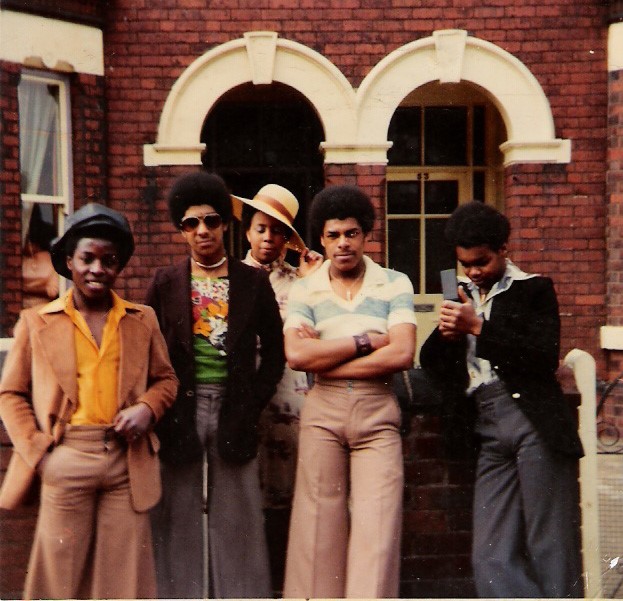The Invisibles strike back in Museum Takeover

The ‘invisibles’ of history – unseen and overlooked people from the past – will be storming Doncaster Museum from 20 December, to take centre-stage for the first time in a ground-breaking new exhibition, Changing the Record, that’s helping to rewrite the history books.
Changing the Record is the work of a new generation of volunteer historians on a mission to restore the true technicolour of Britain’s past, by repopulating the historical landscape with ‘missing people’ who deserve a stronger voice in the historical record. They’ve made extraordinary and unexpected discoveries that are shedding new light on centuries of South Yorkshire history.1970s Doncaster c By kind permission of Second Generation
In true radical fashion, the exhibition won’t be confined to traditional glass cases, but will instead be bursting out across the museum in a takeover trail that aims to challenge long-held perspectives on the past.
“History belongs to everyone. It’s our story,” explains Victoria Ryves from Heritage Doncaster. “But if we don’t recognise any of the people in the starring roles, people who look like us or share similar life experiences, then it can be hard to engage with history or understand its relevance – it becomes a little more than a list of dates. There are some groups of people who are particularly under-represented within the historical record, including women, people of colour, people with disabilities, or the LGBTQ+ community. We wanted to rewrite these local people back into the history books, and so we assembled a master team of volunteers to work with us on Changing the Record.”
“After hours of painstaking detective work, online research, scouring time-worn manuscripts and fading film footage, they’ve made so many wonderful discoveries that we’ve decided to showcase them in a special exhibition opening on 20 December at the new Danum Gallery, Library and Museum.”
Stories taking a starring role in Changing the Record include:
A rewriting of South Yorkshire’s black history: although major cities like London or Manchester have tended to dominate the narrative, in traditional working-class towns like Doncaster, people of colour have been a long-standing, valued and integral part of the community – for centuries longer than people may think.
Less dark magic, more dark history: an investigation into witchcraft has uncovered distressing evidence of socially-sanctioned bullying and ostracisation of single women, with parallels today in modern ‘trolling’.
The tale of true love between Alfred Wainwright and artist, Otto Jübermann is an invaluable addition to the sparse archive of LGBTQIA history in South Yorkshire, providing a remarkable insight into sexual identity and freedom both at home and abroad in the early 20th Century.
New insights into South Yorkshire women who broke the mould – from pioneering businesswomen to intrepid, epic adventurers – are over-turning ideas about gender roles and social attitudes in the past.
The experiences of Irish migrants of the past, moving to Doncaster for new beginnings and new challenges
South Yorkshire’s rebel women are cast into the spotlight: women who dared to take the political stage, defying government to make life better for their families and communities, from the heroines of the coalfields to the suffragettes who weren’t afraid to fight for freedom.
Victoria adds: “Anyone can become a history detective – you don’t need to have studied it at school, you just need to have a curious mind and plenty of love for your subject! Maybe you too could be unearthing hidden histories, finding a voice for the many people of the past whose stories should be heard.”
To find out more about South Yorkshire’s past, budding history detectives can join one of Heritage Doncaster’s fun and free history clubs; delve into their fascinating online archive; explore the galleries of the new Danum Museum; or download bite-size ‘5 Minute Histories’ podcasts featuring real-life people from South Yorkshire’s past. For anyone wanting to dig even deeper into local history, there are even opportunities to sign up as a community heritage volunteer, working alongside museum experts, and delving into the region’s treasure-house of archives and collections.




